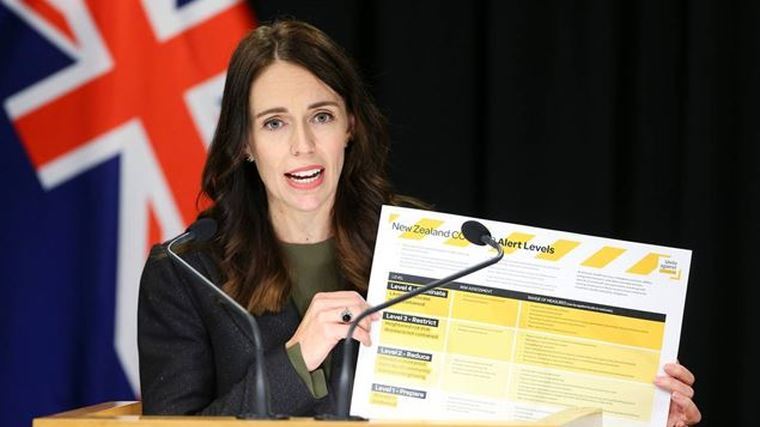Country to go into lockdown

New Zealand is being shut down on March 25 with businesses being offered extra assistance to try to soften the economic blow.
The prime minister has announced today – March 23 – that the alert level for the coronavirus pandemic has been lifted to level three, which means all cafes, restaurants, bars, casinos and other public venues must close.
But in two days’ time it will go to level four. This means everyone must stay at home except those working in essential industries, such as supermarkets, medical care and pharmacies. Schools will also shut with arrangements made to take care of children of those working in essential industries.
Jacinda Ardern says there is now clear evidence of community transmission of Covid-19. Modelling presented to cabinet predicts tens of thousands of Kiwis may die if tougher steps aren’t taken now to halt the spread of the virus.
When they can, businesses should continue operating with staff working from home, but Ardern acknowledges many companies will be hurt by the latest move.
Finance Minister Grant Robertson has announced a new fiscal package to help. As part of that, last week’s wage-subsidy scheme will be expanded to cover all businesses, organisations, contractors and the self-employed. The $150,000 cap placed on the scheme last week has been scrapped.
Robertson now estimates the $5.1 billion cost of the initial wage-subsidy scheme will top $9.3b, assuming 50 per cent of businesses use the 12-week scheme. But the $9.3b isn’t a cap and the government says it will spend as much as is needed.
Under the changed scheme, businesses less than one year old will be eligible as long as they can demonstrate a 30 per cent loss of income against a similar time period.
Self-employed people will also have to demonstrate loss of revenue against the previous year’s monthly average. The scheme also now covers registered charities, non-governmental organisations, incorporated societies and post-settlement government entities. The government will also freeze rent increases and extend the no-cause termination rules for rental property.
In partnership with the Reserve Bank and retail banks, agreement has been reached on a financial guarantee scheme. Backed by the government’s balance sheet, banks will be able to lend money to businesses that would otherwise be unviable.
Robertson adds the government is also looking at a scheme to help mortgage holders and the details of that will be announced in the next few days. It’s also looking at other measures to support the incomes of workers during this time.
Ardern says the lockdown of the entire country will last initially for four weeks, but that may be extended longer. “I do not underestimate what I am asking New Zealanders to do. It is daunting.”
National Party leader Simon Bridges supports the move to level four of the coronavirus alert system and extending the economic package for all businesses. “This is an unprecedented situation and we support any measures that will protect the health and safety of New Zealanders,” he says.
With 102 cases in New Zealand, including two that cannot be linked to overseas travel, the government is considering if there is now community transmission happening. Ardern says while the country will be closed for business, people should be reassured supermarkets, pharmacies and doctors’ surgeries will stay open, but she advises people against rushing to supermarkets and to allow them to restock their shelves.
Asked if the government is considering a universal basic income, the line from Robertson is: “We’re looking to protect the income of New Zealanders while we’re under level four. That work is urgently under way now.”
The country could ease out of level four region by region, but parliament is preparing to disband for at least four weeks after March 25 at midnight.
The government defines essential services that will carry on as any worker who is: 1 – part of the food-supply chain; 2 – educators are temporarily considered essential workers; 3 – building and construction for urgent services provided to hospitals or on water mains; 4 – public servants, such as the police, healthcare workers, defence workers; 5 – the media in limited capacity.





